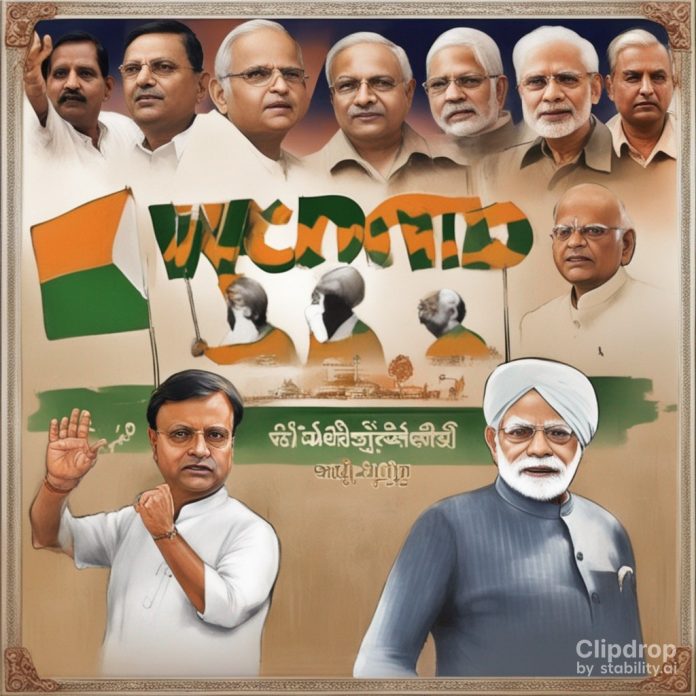In a diverse and vibrant democracy like India, the political landscape is often marked by a multiplicity of ideologies, regional aspirations, and cultural variations. This intricate tapestry is woven together by the phenomenon of coalition politics, which has emerged as a crucial factor in shaping the course of Indian elections. In this blog, we delve into the importance of coalition politics in Indian elections, exploring how it reflects the essence of unity in diversity, ensures representation, and maintains a balance of power.
1. Unity in Diversity:
India’s demographic, linguistic, and cultural diversity is unparalleled. With 28 states and 8 Union territories, the nation encompasses an array of identities and interests. Coalition politics acts as a bridge that connects various regional parties, each rooted in their respective regions and advocating for local concerns. These alliances transcend linguistic and ethnic barriers, uniting parties under a common platform to present a more comprehensive and representative front in elections.
2. Representation of Regional Aspirations:
One of the key advantages of coalition politics is its ability to give voice to regional aspirations. In a federal structure like India, where states possess significant autonomy, regional parties are often better attuned to the local needs and sentiments of their constituents. Coalition arrangements allow these parties to pool their resources and leverage their collective strength to negotiate with the central government for policies and resources that cater to the distinct requirements of their regions.
3. Balancing Power:
Coalition politics acts as a check on the concentration of power by preventing any single party from achieving an overwhelming majority. This balance of power is vital for a healthy democracy, as it encourages consensus-based decision-making and discourages authoritarian tendencies. It also ensures that policies and legislation undergo thorough deliberation, as they must be agreeable to a diverse group of parties with varying viewpoints.
4. National Integration:
While coalition politics often focuses on regional interests, it can also play a role in maintaining national integration. When national parties form alliances with regional parties, it showcases a willingness to accommodate and collaborate across regional lines. This fosters a sense of inclusivity and reinforces the idea that the nation’s progress is intertwined with the well-being of every region.
5. Strategic Voting and Electoral Arithmetic:
Coalition politics introduces an element of strategic voting and electoral arithmetic. Voters and parties must carefully analyze the political landscape to determine which coalitions have the best chance of forming a government. This dynamic encourages voters to think beyond traditional party affiliations and align with alliances that best represent their interests.
6. Challenges and Compromises:
While coalition politics offers numerous benefits, it also comes with its share of challenges. Negotiating and maintaining alliances can be complex, involving compromises on key issues. Ideological differences between coalition partners might lead to policy gridlocks, requiring deft leadership and negotiation skills to find common ground.
Conclusion
coalition politics in Indian elections embodies the nation’s commitment to unity in diversity, representation, and power-sharing. It reflects the complexity of the Indian socio-political landscape and showcases the spirit of compromise and cooperation that is essential for a functioning democracy. As India continues to evolve, coalition politics will likely remain a defining feature, ensuring that the voices of diverse communities are heard and that the nation moves forward as a cohesive whole.

